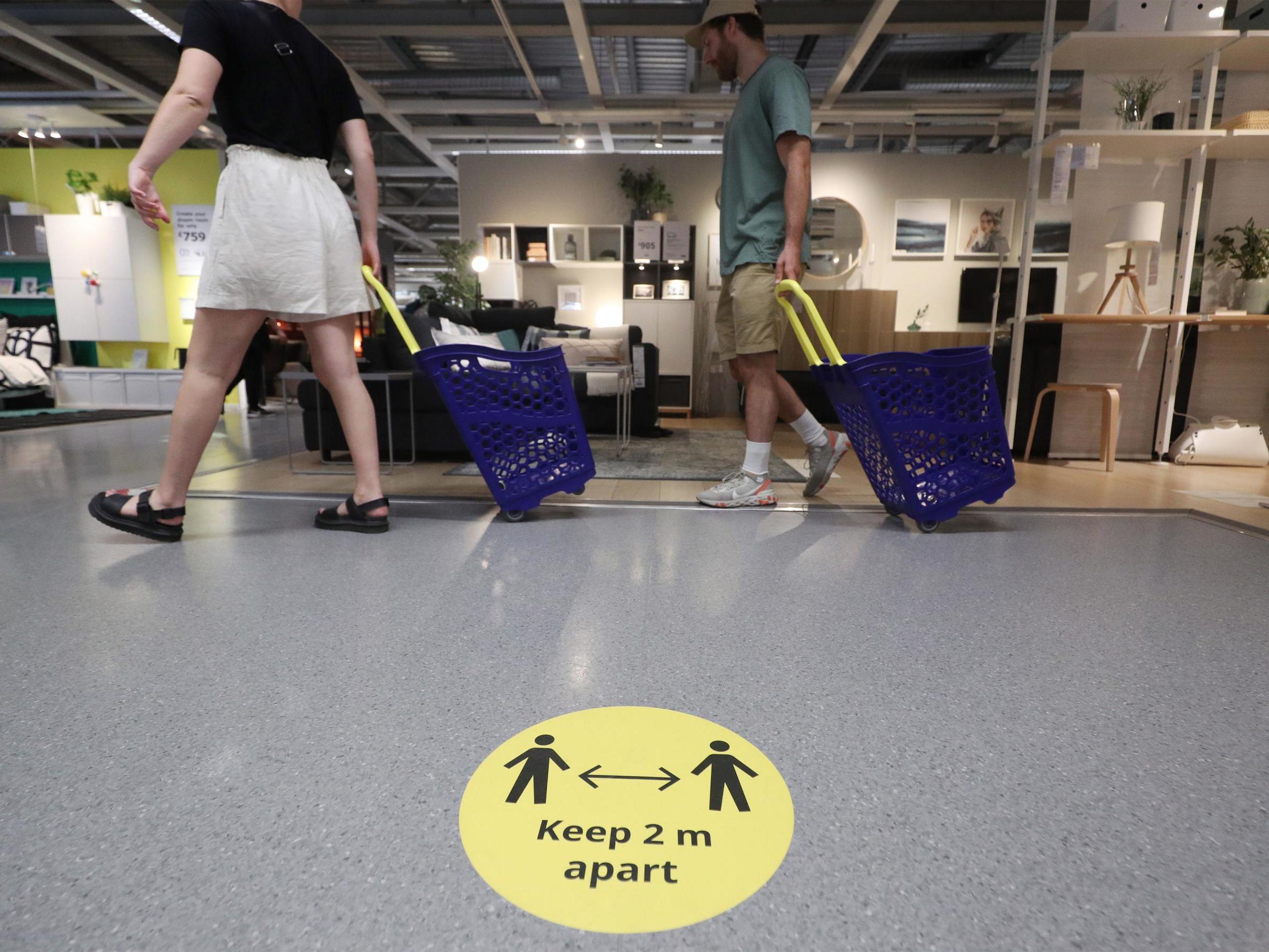‘They’ve forgotten disabled people’: Government urged to protect those with sight loss during outbreak
Guide dog users struggling to remain socially distanced as support animals not trained for post-Covid world

Your support helps us to tell the story
From reproductive rights to climate change to Big Tech, The Independent is on the ground when the story is developing. Whether it's investigating the financials of Elon Musk's pro-Trump PAC or producing our latest documentary, 'The A Word', which shines a light on the American women fighting for reproductive rights, we know how important it is to parse out the facts from the messaging.
At such a critical moment in US history, we need reporters on the ground. Your donation allows us to keep sending journalists to speak to both sides of the story.
The Independent is trusted by Americans across the entire political spectrum. And unlike many other quality news outlets, we choose not to lock Americans out of our reporting and analysis with paywalls. We believe quality journalism should be available to everyone, paid for by those who can afford it.
Your support makes all the difference.The government has been urged to renew its guidance for supermarkets and address the pressing medical needs of people with eye conditions, as those living with sight loss warn they are being denied access to vital treatments and ignored as social distancing measures are implemented.
In a survey conducted by charity Fight for Sight, some four in 10 people said they feared their sight would further deteriorate during the pandemic, with some saying they had not been able to access regular injections and necessary surgeries to preserve their vision.
Meanwhile, 73 per cent of respondents to the poll of 325 adults with eye conditions said they had experienced reduced access to treatments during the outbreak. Two in five said they found it difficult to follow social distancing rules during the lockdown, with more than half saying they had seen their access to food and goods diminished during measures to stop the spread of the coronavirus.
Angharad Paget-Jones, 27, who is registered blind and uses a guide dog, said she had been shouted at by members of the public after finding herself too close to them while out shopping — while large supermarkets have not been able to make staff available to help her find the things she needs.
Meanwhile her guide dog, Tudor, is more likely to be confused than aided by yellow warning tape used to mark 2m distances — which outside the context of the virus are often used to identify steps and trip hazards.
She told the Independent: “I’m told there are arrows and spacing on the floor, but as someone who can’t see the ground and as somebody who cannot see the floor that’s not very much good — and my dog isn’t trained [for this] ... he’s not trained to know what they are. It’s like the queueing outside supermarkets — he’s trained to find the door he’s not trained to find the end of the queue”.
She added that government messaging throughout the pandemic has frequently forgotten the needs of disabled people. “They aren’t even putting audio descriptions on their feeds, they’re not putting out large print for us, they didn’t even have sign language on the broadcasts so they’ve forgotten disabled people and that’s not good enough — especially as everyone is one slip away from being disabled”.
Meanwhile Elaine Young, 68, from South Lanarkshire in Scotland has had her local hospital cancel an appointment to treat her age-related macular degeneration — and fears her eyesight may suffer as a consequence.
“I’m worried that by not having my injection, my eyesight is getting worse”, she said. “I’ve noticed that there are more wavy lines in my vision.
“It’s frustrating because I have no idea when my next appointment will be or even when they’ll start up the clinic again.”
The concern from disabled people comes a month after a cross-party letter signed by 97 MPs and peers urged the government to “re-evaluate its current strategy to ensure social distancing does not lead to exclusion for those with disabilities”.
Chief Executive of Fight for Sight, Sherine Krause said: “The government must develop a plan that addresses the immediate need of people with eye conditions, so they don’t become blind because of lockdown and social distancing measures.
“Additionally, we’re calling on the government to urgently update its advice to retailers on social distancing measures to ensure the needs of people with poor vision are not excluded. In the longer term, we must continue to fund research for new, more efficient treatments and cures for the leading causes of blindness and sight loss, to help ease the pressure on our NHS.”
Join our commenting forum
Join thought-provoking conversations, follow other Independent readers and see their replies
Comments